Eastern Region Campus Compact: 2019 Biennial Conference
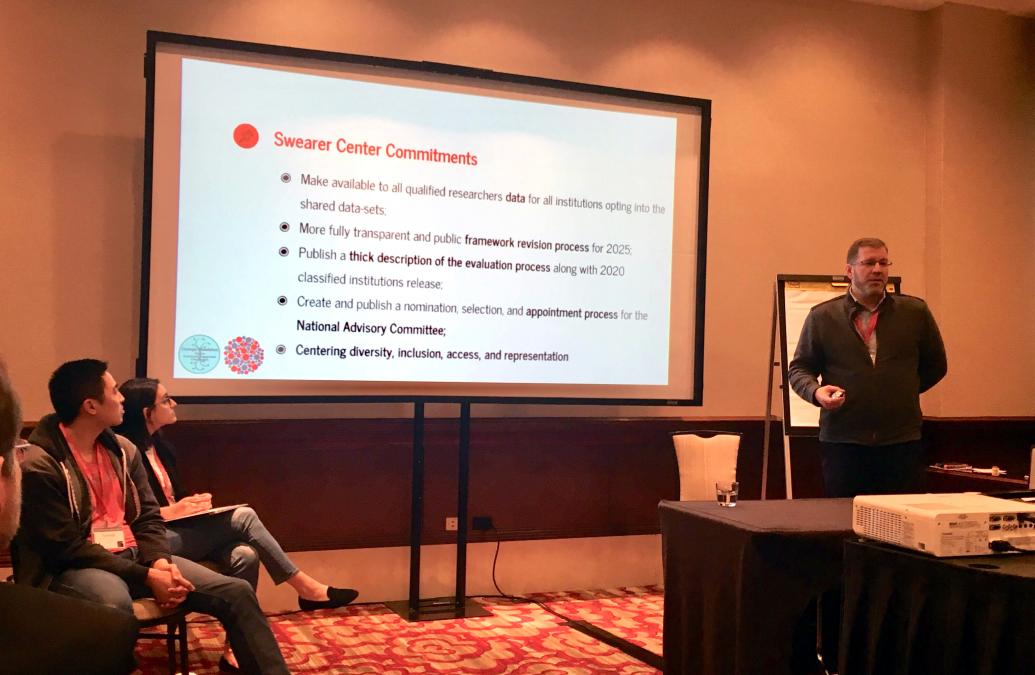
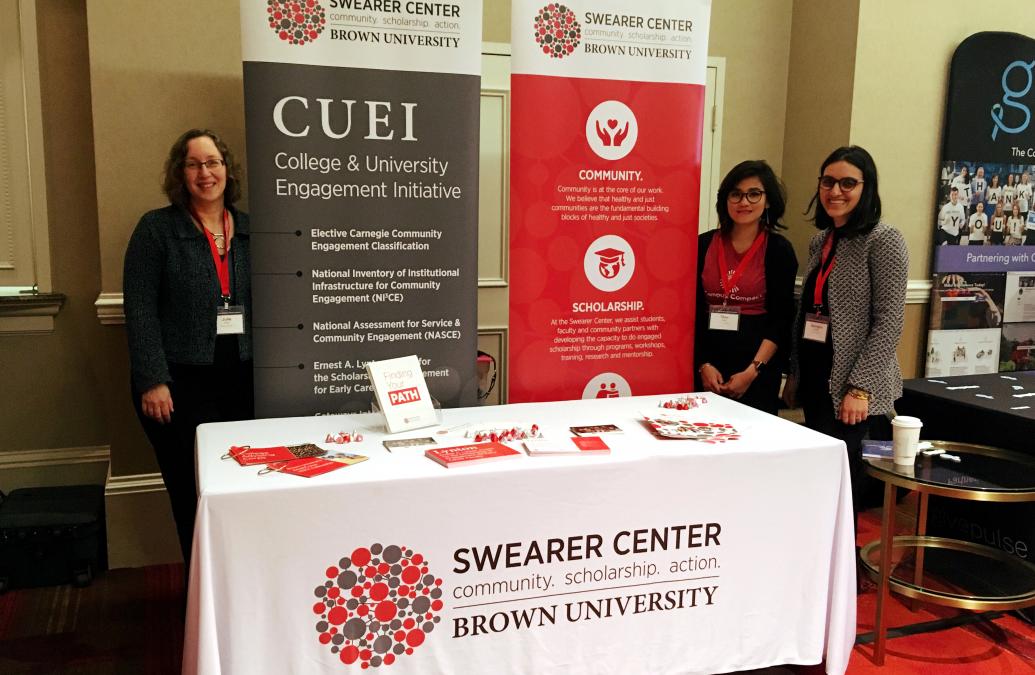
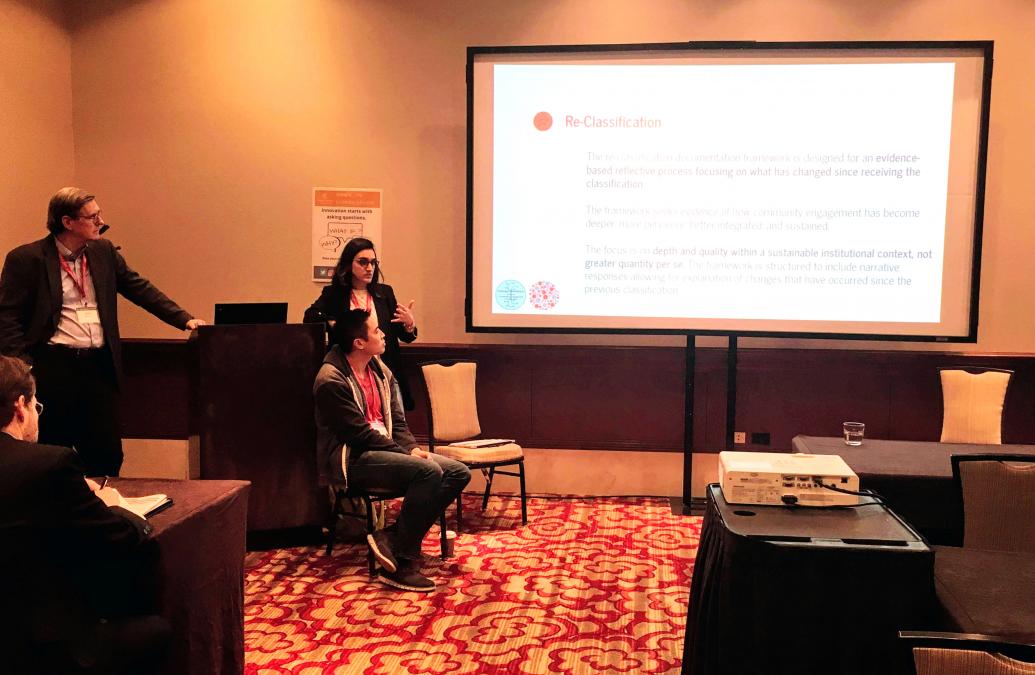
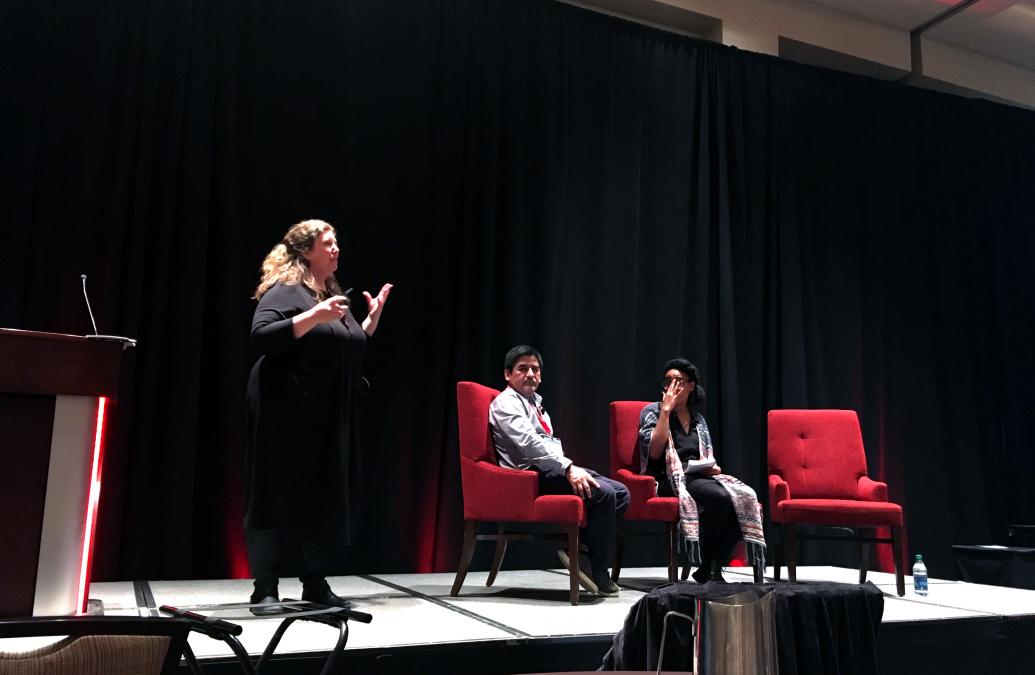
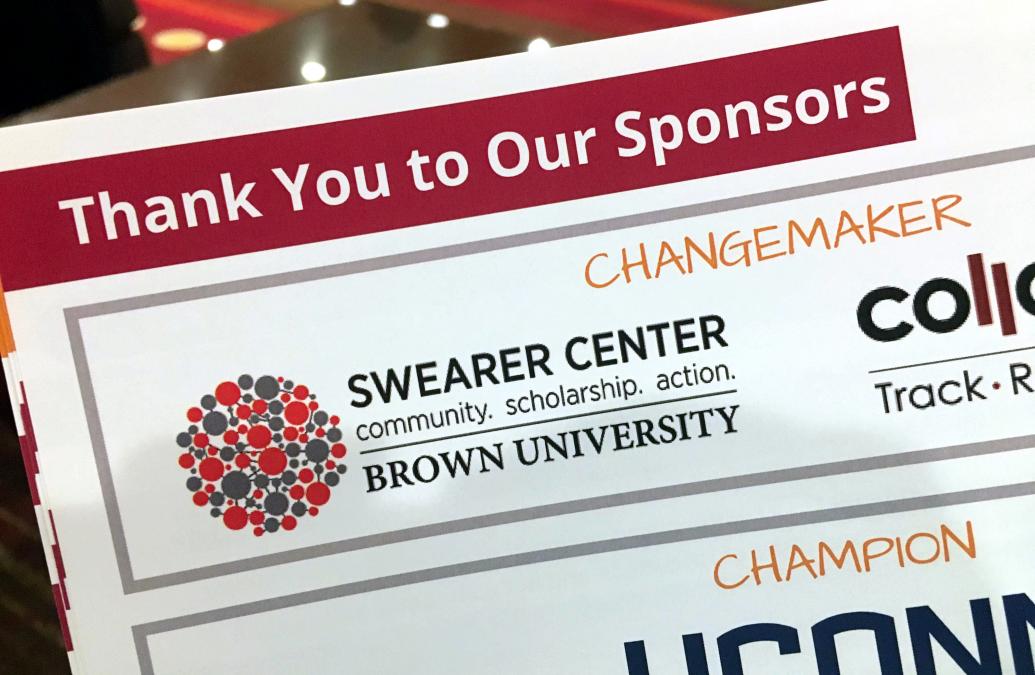
HISTORY OF CAMPUS COMPACT
In 1985, leaders in higher education from across the country – including Brown’s then-President Howard Swearer – shared a concern about the ongoing health and strength of democracy in the United States. They believed that higher education could more effectively contribute to the sustainability of a democracy with more robust support structures for community engagement. Out of their conversations and collective action, an organization called Campus Compact was born and incubated in Rhode Island and hosted by Brown University until 2006.
Now, Campus Compact is a national coalition of 1,000 colleges and universities committed to the public purposes of higher education. As the only national higher education association dedicated solely to campus-based civic engagement, Campus Compact enables campuses to develop students’ citizenship skills and forge effective community partnerships.
EASTERN REGION CAMPUS COMPACT CONFERENCE
This past week, from March 25-27, 2019, 400 people from more than 20 states gathered at the Omni Hotel in Providence for the 2019 Eastern Region Campus Compact biennial conference. (Check out some of our favorite moments from the #ERCC2019 Conference through our Twitter feed.)
“This year’s theme, Educating for Democracy: Innovating in Complex Times, is both an acknowledgment of the challenges we face as well as the importance of higher education’s role and responsibility to actively building a just and inclusive democracy, economy, and society,” wrote Matt Farley, Director of Campus Compact for Southern New England and the ERCC Conference Chair. “The conference is a space to not only honor the current work in the field but also to critically examine it.”
The Swearer Center was a proud sponsor for this conference; 17 staff members were in attendance as participants and/or volunteers, while two graduate fellows and six staff members presented or facilitated sessions:
-
Kerri Heffernan, Director, Engaged Sport Initiative. Strengthening the Capacity of Local Community Organizations to Deliver and Sustain Organized Sport Opportunities for Local Youth; and Innovative Collaborations: Building Coach-faculty Partnerships to Serve the Civic Mission of the University.
-
Betsy Shimberg, Assistant Dean of the College, Engaged Co-curriculum; Director, Student Development. Beyond the Ballot: Activating Deeper Democratic Engagement Within the University.
-
Georgina Manok, Assistant Director, Research and Assessment. A Conversation with The Carnegie Elective Community Engagement Classification Team.
-
Mathew Johnson, Executive Director; Director of the College and University Engagement Initiative (CUEI); Associate Dean of the College, Engaged Scholarship. A Conversation with The Carnegie Elective Community Engagement Classification Team; and Colloquium Closing.
-
Jesús Hernández, Program Manager, Faculty Engagement and Research. What Engaged Scholarship Can Learn from Activist Scholarly Traditions; and plenary discussion facilitation for Voices of Engaged Knowing: Language, Identity, and Engaged Scholarship.
-
Julie Plaut, Assistant Dean of the College, Director of Faculty Engagement and Research. Plenary introduction and plenary discussion facilitation for Voices of Engaged Knowing: Language, Identity, and Engaged Scholarship.
-
Laura Garbes, Graduate Fellow, Youth Southeast Asian Leadership Initiative. Alternative Epistemologies for Engagement with Community: How to Do Our Work with Our Communities and Not Solely for Our Communities.
-
Prabhdeep Kehal, Graduate Fellow, CUEI. Alternative Epistemologies for Engagement with Community: How to Do Our Work with Our Communities and Not Solely for Our Communities.
THE LYNTON COLLOQUIUM
Typically separate events, this year the Eastern Region Campus Compact Conference concluded with the Lynton Colloquium. This consolidation allowed opportunities for past Lynton Award recipients to lead breakout sessions as part of the Lynton Colloquium, while seven of the Engaged Scholars Initiative cohort (another partnership between ERCC and the Swearer Center) led sessions on authentic engagement in communities on- and off-campus, what engaged scholarship can learn from interdisciplinary activist scholarly traditions, and more.
While many awards for faculty focus on those at the end of their careers, the Ernest A. Lynton Award deliberately honors faculty early in their career. Sponsored by the Swearer Center at Brown University in partnership with the Coalition of Urban and Metropolitan Universities (CUMU), the annual Ernest A. Lynton Award for the Scholarship of Engagement for Early Career Faculty emphasizes community-engaged scholarly work across faculty roles. The scholarship of engagement represents an integrated view of faculty roles in which teaching, research/creative activity and service overlap and are mutually reinforcing. It is characterized by scholarly work tied to a faculty member's academic expertise, is of benefit to the external community, is visible and shared with community stakeholders and reflects the mission of the institution.
The 2018 Lynton Award recipient, Dr. Brook Lillehaugen, Haverford College Assistant Professor and Chair of Linguistics, presented with her community and student collaborators, Felipe H. Lopez and Sabea Evans, reflecting on the Ticha Project, its social and political context and spaces for co-creation.
The Swearer Center is accepting nominations for the 2019 Lynton Award now through June 1, 2019.
